By Evelyn Karatzas
 Melbourne -- The Greek-Australian author and historian Dr. Themistocles Kritikakos has discussed the release of his latest book with The National Herald, which explores the long-term effects of the Armenian, Greek and Assyrian Genocide and its recognition in 21st century Australia. Dr. Kritikakos is a writer and historian born and raised in Melbourne.
Melbourne -- The Greek-Australian author and historian Dr. Themistocles Kritikakos has discussed the release of his latest book with The National Herald, which explores the long-term effects of the Armenian, Greek and Assyrian Genocide and its recognition in 21st century Australia. Dr. Kritikakos is a writer and historian born and raised in Melbourne.
 Ankara -- An Assyrian delegation from Sweden, headed by Assyrian Member of Swedish Parliament Yusuf Aydin, conducted a series of official meetings in the Turkish capital on 24 February to follow up on issues related to the rights of the Assyrian people, particularly property rights and the preservation of cultural heritage.
Ankara -- An Assyrian delegation from Sweden, headed by Assyrian Member of Swedish Parliament Yusuf Aydin, conducted a series of official meetings in the Turkish capital on 24 February to follow up on issues related to the rights of the Assyrian people, particularly property rights and the preservation of cultural heritage.
By Ashur Shirsha
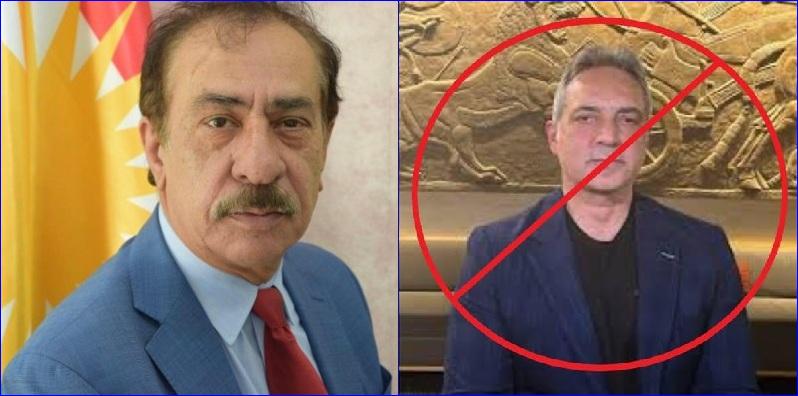 (AINA) -- A recent threatening and defamatory social media post made by the Washinton DC representative of the Kurdistan Regional Government (KRG), Mr Dasko Shirwani, against a prominent Assyrian community leader, Mr.
(AINA) -- A recent threatening and defamatory social media post made by the Washinton DC representative of the Kurdistan Regional Government (KRG), Mr Dasko Shirwani, against a prominent Assyrian community leader, Mr.
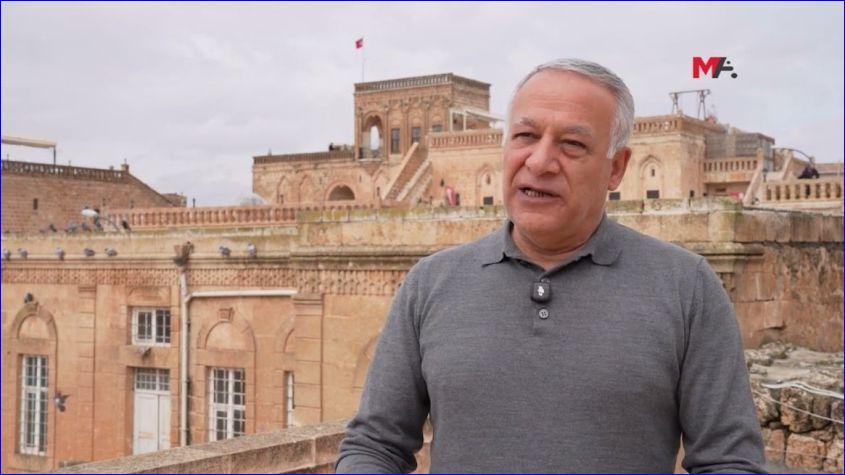 Merde, Turkey -- In the stone courtyards of Tur Abdin, in Turkey's southeast, the Assyrian language now survives in just one officially recognized preschool. Community leaders warn that without urgent action, that fragile foothold may not be enough to secure its future.
Merde, Turkey -- In the stone courtyards of Tur Abdin, in Turkey's southeast, the Assyrian language now survives in just one officially recognized preschool. Community leaders warn that without urgent action, that fragile foothold may not be enough to secure its future.
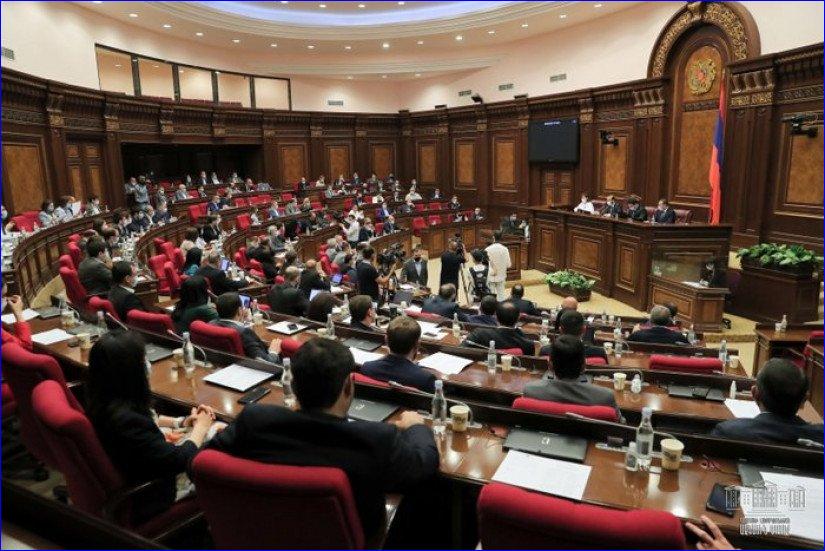 The four largest national minorities in Armenia, based on the 2022 census, have been identified for guaranteed representation in the National Assembly. According to the results of the 2022 census, the four largest national minorities in Armenia by permanent population are: Yezidis -- 31,079 Russians -- 14,076 Assyrians -- 2,755 Kurds -- 1,663 Under the Constitutional Law on the Electoral Code,...
The four largest national minorities in Armenia, based on the 2022 census, have been identified for guaranteed representation in the National Assembly. According to the results of the 2022 census, the four largest national minorities in Armenia by permanent population are: Yezidis -- 31,079 Russians -- 14,076 Assyrians -- 2,755 Kurds -- 1,663 Under the Constitutional Law on the Electoral Code,...
By Micah van Halteren
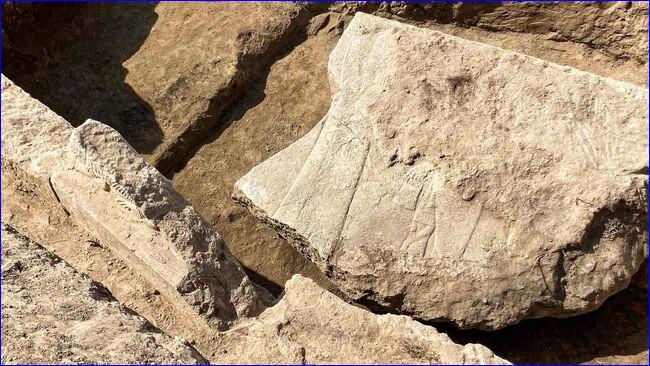 In May 2025, archaeologists excavating ancient Nineveh announced the discovery of a seventh-century BC. stone relief depicting the "last great king" of Assyria--Ashurbanipal (669--631 BC.). On the relief, he is depicted as standing between Ashur and Ishtar--two of ancient Assyria's most important deities. Assyria dominated the Middle East between the ninth and the seventh centuries BC.
In May 2025, archaeologists excavating ancient Nineveh announced the discovery of a seventh-century BC. stone relief depicting the "last great king" of Assyria--Ashurbanipal (669--631 BC.). On the relief, he is depicted as standing between Ashur and Ishtar--two of ancient Assyria's most important deities. Assyria dominated the Middle East between the ninth and the seventh centuries BC.
 Washington -- A senior Republican lawmaker is calling on President Donald J. Trump to prioritize the rights and political future of Iraq's Chaldean Syriac Assyrian Christians, framing the issue as both a moral imperative and a strategic U.S. interest in the Middle East. In a February 16 letter, Rep. Darin LaHood, a member of the U.S.
Washington -- A senior Republican lawmaker is calling on President Donald J. Trump to prioritize the rights and political future of Iraq's Chaldean Syriac Assyrian Christians, framing the issue as both a moral imperative and a strategic U.S. interest in the Middle East. In a February 16 letter, Rep. Darin LaHood, a member of the U.S.
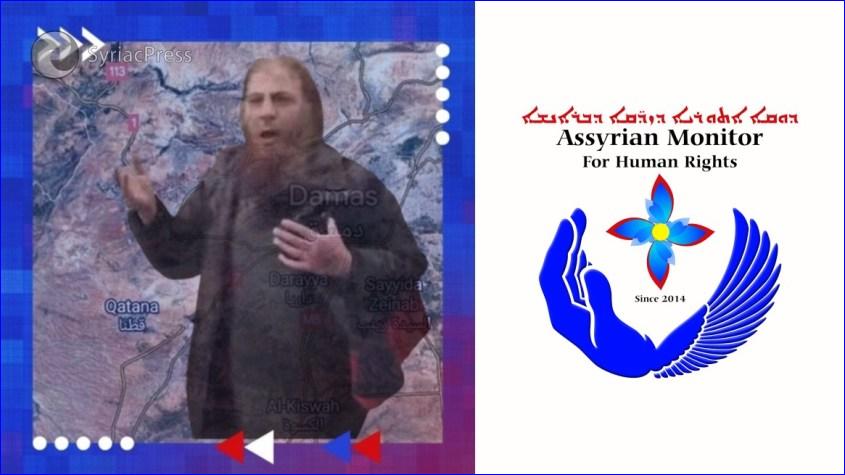 The Assyrian Monitor for Human Rights (AMHR) issued a stark warning over what it describes as an escalating pattern of intimidation aimed at Christian communities in the Syrian capital and its surrounding countryside, urging authorities to intervene before fragile social cohesion further erodes.
The Assyrian Monitor for Human Rights (AMHR) issued a stark warning over what it describes as an escalating pattern of intimidation aimed at Christian communities in the Syrian capital and its surrounding countryside, urging authorities to intervene before fragile social cohesion further erodes.
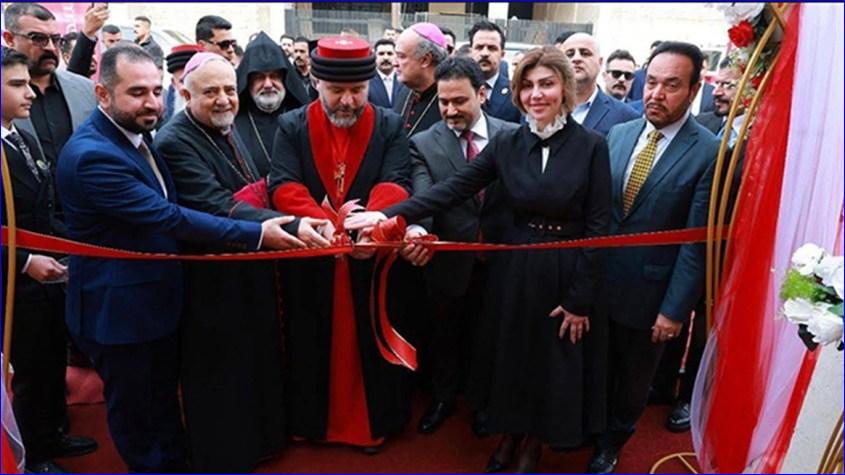 Baghdad -- The Ancient Church of the East formally inaugurated its new patriarchal headquarters in Iraq's capital on Saturday, 14 February 2026, in a ceremony that blended ecclesiastical tradition with state participation and underscored the enduring presence of one of the country's most historical Christian communities.
Baghdad -- The Ancient Church of the East formally inaugurated its new patriarchal headquarters in Iraq's capital on Saturday, 14 February 2026, in a ceremony that blended ecclesiastical tradition with state participation and underscored the enduring presence of one of the country's most historical Christian communities.
Matti Matti grew up in Ankawa, a Christian enclave outside of Erbil in Iraq's Kurdistan Region. He's witnessed the town change dramatically as Iraq's Christian population has collapsed, from 1.5 million in 2003 to fewer than 150,000 today. As many Assyrians, Chaldeans and Syriacs leave -- terms often used interchangeably -- others like Dilan Adamat have made the decision to return.
 Speakers at the sixth annual International Religious Freedom Summit on Monday warned that religious freedom is rapidly deteriorating across several Middle Eastern countries, urging the United States, Western governments, and international bodies to take stronger action.
Speakers at the sixth annual International Religious Freedom Summit on Monday warned that religious freedom is rapidly deteriorating across several Middle Eastern countries, urging the United States, Western governments, and international bodies to take stronger action.
 Esslingen, Germany -- The creativity and excellence of the Assyrian people across all fields of life, artistic, athletic, and scientific, are not confined by geographic or regional boundaries, but stem from the authenticity of this people and their contributions to human civilization since ancient times.
Esslingen, Germany -- The creativity and excellence of the Assyrian people across all fields of life, artistic, athletic, and scientific, are not confined by geographic or regional boundaries, but stem from the authenticity of this people and their contributions to human civilization since ancient times.
 Melbourne -- The Greek-Australian author and historian Dr. Themistocles Kritikakos has discussed the release of his latest book with The National Herald, which explores the long-term effects of the Armenian, Greek and Assyrian Genocide and its recognition in 21st century Australia. Dr. Kritikakos is a writer and historian born and raised in Melbourne.
Melbourne -- The Greek-Australian author and historian Dr. Themistocles Kritikakos has discussed the release of his latest book with The National Herald, which explores the long-term effects of the Armenian, Greek and Assyrian Genocide and its recognition in 21st century Australia. Dr. Kritikakos is a writer and historian born and raised in Melbourne.
 Ankara -- An Assyrian delegation from Sweden, headed by Assyrian Member of Swedish Parliament Yusuf Aydin, conducted a series of official meetings in the Turkish capital on 24 February to follow up on issues related to the rights of the Assyrian people, particularly property rights and the preservation of cultural heritage.
Ankara -- An Assyrian delegation from Sweden, headed by Assyrian Member of Swedish Parliament Yusuf Aydin, conducted a series of official meetings in the Turkish capital on 24 February to follow up on issues related to the rights of the Assyrian people, particularly property rights and the preservation of cultural heritage. (AINA) -- A recent threatening and defamatory social media post made by the Washinton DC representative of the Kurdistan Regional Government (KRG), Mr Dasko Shirwani, against a prominent Assyrian community leader, Mr.
(AINA) -- A recent threatening and defamatory social media post made by the Washinton DC representative of the Kurdistan Regional Government (KRG), Mr Dasko Shirwani, against a prominent Assyrian community leader, Mr. Merde, Turkey -- In the stone courtyards of Tur Abdin, in Turkey's southeast, the Assyrian language now survives in just one officially recognized preschool. Community leaders warn that without urgent action, that fragile foothold may not be enough to secure its future.
Merde, Turkey -- In the stone courtyards of Tur Abdin, in Turkey's southeast, the Assyrian language now survives in just one officially recognized preschool. Community leaders warn that without urgent action, that fragile foothold may not be enough to secure its future. The four largest national minorities in Armenia, based on the 2022 census, have been identified for guaranteed representation in the National Assembly. According to the results of the 2022 census, the four largest national minorities in Armenia by permanent population are: Yezidis -- 31,079 Russians -- 14,076 Assyrians -- 2,755 Kurds -- 1,663 Under the Constitutional Law on the Electoral Code,...
The four largest national minorities in Armenia, based on the 2022 census, have been identified for guaranteed representation in the National Assembly. According to the results of the 2022 census, the four largest national minorities in Armenia by permanent population are: Yezidis -- 31,079 Russians -- 14,076 Assyrians -- 2,755 Kurds -- 1,663 Under the Constitutional Law on the Electoral Code,... In May 2025, archaeologists excavating ancient Nineveh announced the discovery of a seventh-century BC. stone relief depicting the "last great king" of Assyria--Ashurbanipal (669--631 BC.). On the relief, he is depicted as standing between Ashur and Ishtar--two of ancient Assyria's most important deities. Assyria dominated the Middle East between the ninth and the seventh centuries BC.
In May 2025, archaeologists excavating ancient Nineveh announced the discovery of a seventh-century BC. stone relief depicting the "last great king" of Assyria--Ashurbanipal (669--631 BC.). On the relief, he is depicted as standing between Ashur and Ishtar--two of ancient Assyria's most important deities. Assyria dominated the Middle East between the ninth and the seventh centuries BC. Washington -- A senior Republican lawmaker is calling on President Donald J. Trump to prioritize the rights and political future of Iraq's Chaldean Syriac Assyrian Christians, framing the issue as both a moral imperative and a strategic U.S. interest in the Middle East. In a February 16 letter, Rep. Darin LaHood, a member of the U.S.
Washington -- A senior Republican lawmaker is calling on President Donald J. Trump to prioritize the rights and political future of Iraq's Chaldean Syriac Assyrian Christians, framing the issue as both a moral imperative and a strategic U.S. interest in the Middle East. In a February 16 letter, Rep. Darin LaHood, a member of the U.S. The Assyrian Monitor for Human Rights (AMHR) issued a stark warning over what it describes as an escalating pattern of intimidation aimed at Christian communities in the Syrian capital and its surrounding countryside, urging authorities to intervene before fragile social cohesion further erodes.
The Assyrian Monitor for Human Rights (AMHR) issued a stark warning over what it describes as an escalating pattern of intimidation aimed at Christian communities in the Syrian capital and its surrounding countryside, urging authorities to intervene before fragile social cohesion further erodes. Baghdad -- The Ancient Church of the East formally inaugurated its new patriarchal headquarters in Iraq's capital on Saturday, 14 February 2026, in a ceremony that blended ecclesiastical tradition with state participation and underscored the enduring presence of one of the country's most historical Christian communities.
Baghdad -- The Ancient Church of the East formally inaugurated its new patriarchal headquarters in Iraq's capital on Saturday, 14 February 2026, in a ceremony that blended ecclesiastical tradition with state participation and underscored the enduring presence of one of the country's most historical Christian communities. Speakers at the sixth annual International Religious Freedom Summit on Monday warned that religious freedom is rapidly deteriorating across several Middle Eastern countries, urging the United States, Western governments, and international bodies to take stronger action.
Speakers at the sixth annual International Religious Freedom Summit on Monday warned that religious freedom is rapidly deteriorating across several Middle Eastern countries, urging the United States, Western governments, and international bodies to take stronger action. Esslingen, Germany -- The creativity and excellence of the Assyrian people across all fields of life, artistic, athletic, and scientific, are not confined by geographic or regional boundaries, but stem from the authenticity of this people and their contributions to human civilization since ancient times.
Esslingen, Germany -- The creativity and excellence of the Assyrian people across all fields of life, artistic, athletic, and scientific, are not confined by geographic or regional boundaries, but stem from the authenticity of this people and their contributions to human civilization since ancient times. (AINA) -- Dr. Sophia Isaac is a scholar, educator, and cultural advocate whose own life reflects the very journey she studies. Born in Urmia, Iran, and brought to the United States as a child before the 1979 Iranian Revolution, she grew up navigating the space between two identities--Assyrian heritage and American life.
(AINA) -- Dr. Sophia Isaac is a scholar, educator, and cultural advocate whose own life reflects the very journey she studies. Born in Urmia, Iran, and brought to the United States as a child before the 1979 Iranian Revolution, she grew up navigating the space between two identities--Assyrian heritage and American life.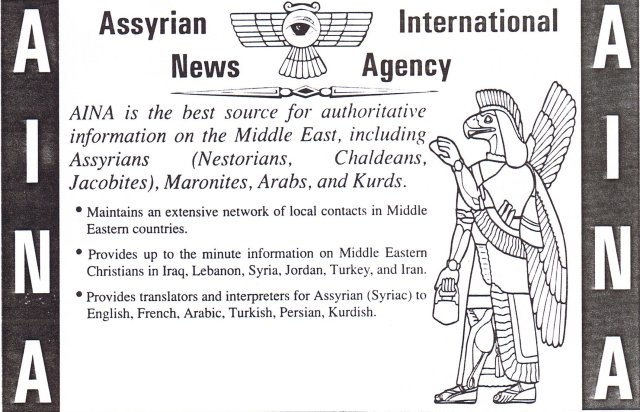 (AINA) -- For three decades the Assyrian International News Agency (AINA) has served as one of the most influential and authoritative voices documenting the life, heritage, and challenges of Assyrians and their Syriac-speaking Churches, both in the homeland and the diaspora. AINA is a privately funded, independent news agency founded by Peter Pnuel BetBasoo and Firas Jatou in 1995.
(AINA) -- For three decades the Assyrian International News Agency (AINA) has served as one of the most influential and authoritative voices documenting the life, heritage, and challenges of Assyrians and their Syriac-speaking Churches, both in the homeland and the diaspora. AINA is a privately funded, independent news agency founded by Peter Pnuel BetBasoo and Firas Jatou in 1995. (AINA) -- The Assyrian Arts Institute (AAI) is an organization founded by Nora Betyousef Lacey in 2017 and claims to support Assyrian arts. AAI has sponsored a few events since its founding, including an Assyrian women's choir.
(AINA) -- The Assyrian Arts Institute (AAI) is an organization founded by Nora Betyousef Lacey in 2017 and claims to support Assyrian arts. AAI has sponsored a few events since its founding, including an Assyrian women's choir.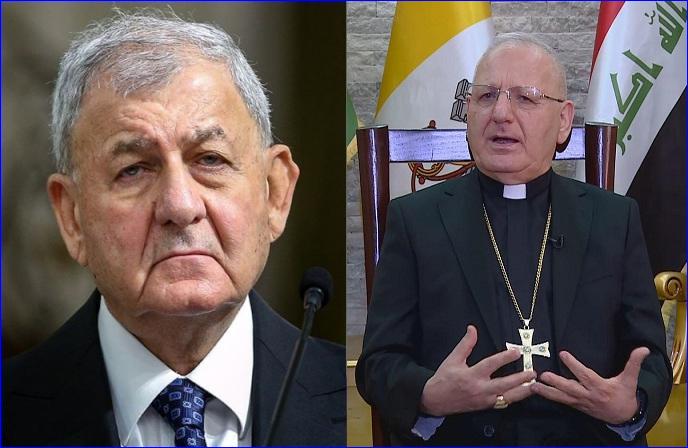 (AINA) -- On July 12 Iraqi president Abdul Latif Rashid repealed the decree recognizing the appointment of Cardinal Louis Raphael Sako as head of the Chaldean Catholic Church and which appointed him to the office of the waqf (وقف), the endowment which oversees all church property. The details of the events leading up to this action are exhaustively covered in this report by MEMRI.
(AINA) -- On July 12 Iraqi president Abdul Latif Rashid repealed the decree recognizing the appointment of Cardinal Louis Raphael Sako as head of the Chaldean Catholic Church and which appointed him to the office of the waqf (وقف), the endowment which oversees all church property. The details of the events leading up to this action are exhaustively covered in this report by MEMRI.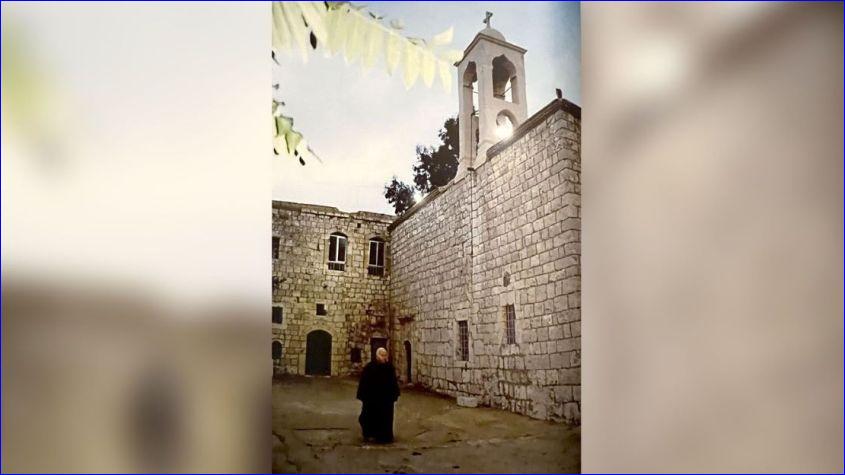 Three hundred and fifty years separate us from the last medieval Maronite epigraph, that of Our Lady of Ilige dated 1277 and the new inscription, dated 1628, at Mar Chalita of Ghosta, which marks the beginning of a renaissance that Lebanon was to experience under Ottoman rule.
Three hundred and fifty years separate us from the last medieval Maronite epigraph, that of Our Lady of Ilige dated 1277 and the new inscription, dated 1628, at Mar Chalita of Ghosta, which marks the beginning of a renaissance that Lebanon was to experience under Ottoman rule. Kochi, India -- As the Yuletide spirit fills the air, posters, cutouts and dolls of Santa Claus crop up everywhere, heralding the season of love and sharing. However, not many may know that Santa, the most popular symbol of Christmas, is inspired from and modelled after St Nicholas, a fourth-century bishop from Myra in ancient Turkey known for his generosity and secret gift-giving.
Kochi, India -- As the Yuletide spirit fills the air, posters, cutouts and dolls of Santa Claus crop up everywhere, heralding the season of love and sharing. However, not many may know that Santa, the most popular symbol of Christmas, is inspired from and modelled after St Nicholas, a fourth-century bishop from Myra in ancient Turkey known for his generosity and secret gift-giving.